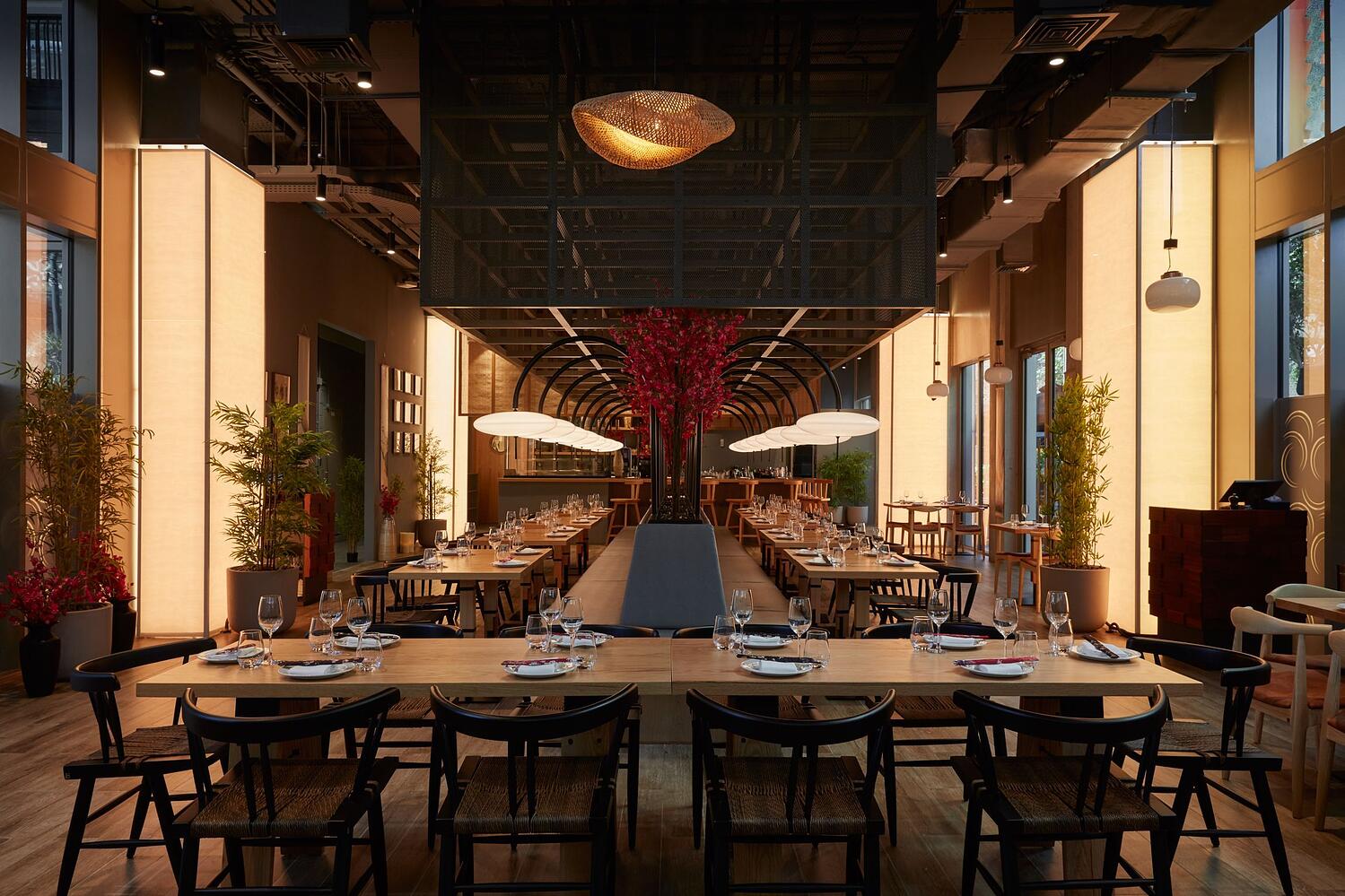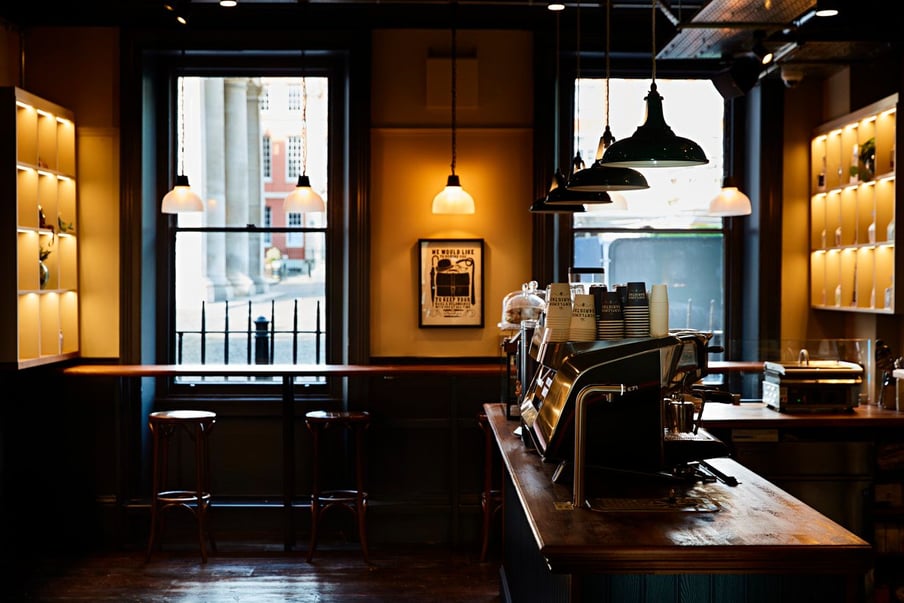Why Creating a Concept is Important?
1. Mission. Vision. Value
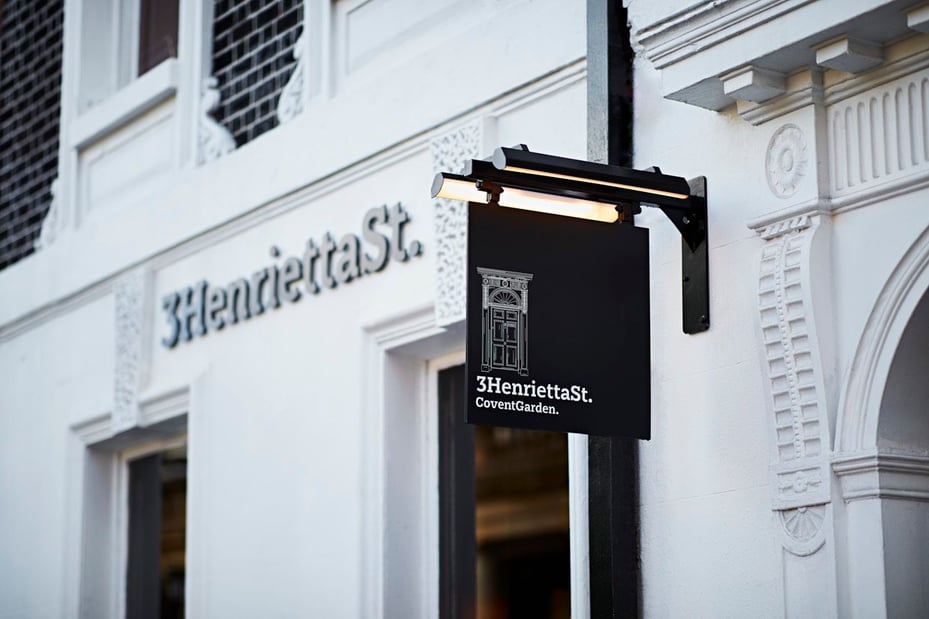
Though many might be tempted to start developing a brand around the design aspect of it - fonts, colours, logos - the best approach is to focus on the meaning of the brand. Once this is determined, the design choices are likely to be influenced by that. Determining the Mission, Vision and Values, helps transform abstract ideas into words, and later on - into actions and plans, building up the concept from the ground.
There are three questions you need to have a clear answer to, when approaching this step:
-
What does the idea aim to achieve in the future? - That is the Vision
When coming up with a restaurant idea, determine what the goals are. Success can only be achieved when you know where you are aiming for.
-
What are we doing now? - This is the mission
Explain how the idea will interrupt the market, how it will challenge the already known. What is the immediate mission of your venue, and how it’s impacting both your customers and the world.
-
What do we believe in above all else? - These are the values
Values will depend on the establishment and the mission of it, but in general, these are the affirmations that the whole team should live and breathe by. There is no set number of values an establishment can have, but it’s always recommended to have at least 3-4 as a start. But not too many either - everyone should be able to easily remember and recognise them.
2. Thinking Like the Guest
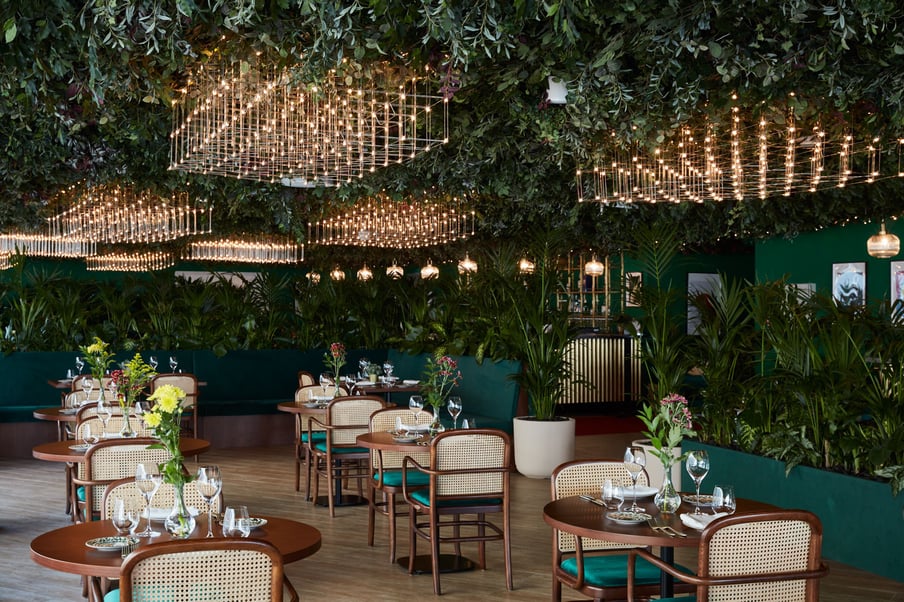
Coming up with a concept, without consideration of the customer it is aimed at, is a recipe for a disaster. As unique and imaginative as it might seem, if there is no consumer demand or ability to resonate, the business venture will not last. This is increasingly true for concepts created to serve short-lived social media trends, whilst lacking in what really matters - structure, plan, supportive team and consumer understanding.
“Anything that is a fad rather than a consistent trend generally, like the fad, won’t last very long. The same goes for food that looks good but doesn’t taste good - since Covid, customers value food quality & experience rather than just what looks good on Instagram." says Magdalene
Thinking about what the customer wants and needs is crucial - a fine dining concept in a modern, hipster neighbourhood might not work as well as in the heart of the city, or at a specifically selected location. At the same time, an affordable “lunch break” chain might be a bit lost in a sea of similar vendors already catering to the needs of the city’s business district.
3. Research the Market
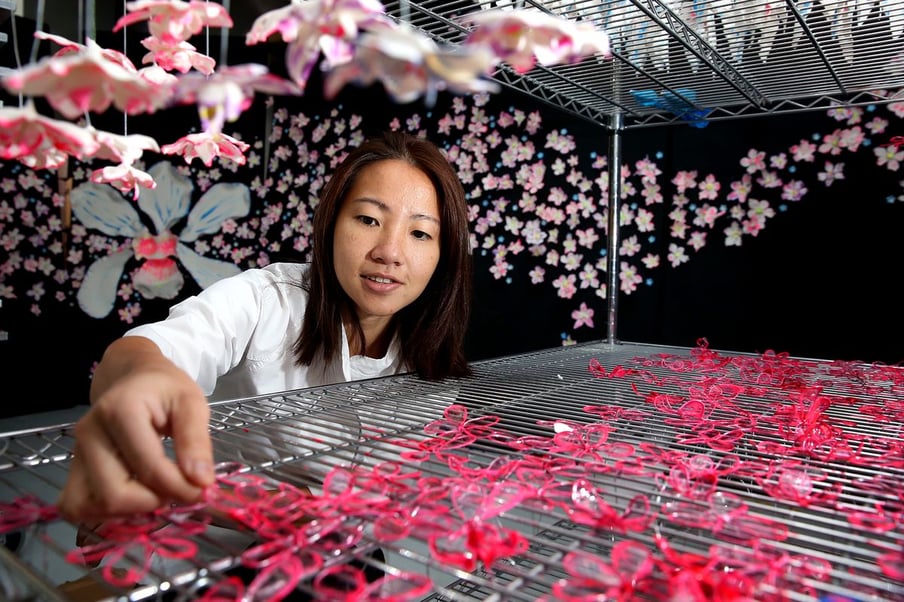
Researching the local and international market should be one of the initial steps as soon as an idea starts developing into a concept.
What really tips the scales is expertise - having market insight and informative analytics, which can lead to informed, actionable plans. Precise and professional knowledge of the market is invaluable to long term success.
As great as the idea is, if there is an established competitor with a similar proposition in the area, it might prove challenging to outdo them. And quite often it might backfire, as they are almost guaranteed to use their dedicated following to put any newcomer at a disadvantage. This is not to say that two similar concepts can’t exist in the same vicinity, but that’s exactly where a team of hospitality marketing specialists can be helpful with outlining a concept, which does not directly compete but outshines an already existing one in the area.
Once all insights are available, develop a business plan and stick to it, reviewing it at least every quarter. Tweak it to fit the increasing market knowledge that will be gained through running the venue in the first few months.
4. Consider the Location
As we said above, certain concepts might not be the best, if they don’t fit in the overall area where they are set.
Placing a premium concept in a deprived area won’t yield any good results. A novelty, instagrammable bar will do better in a prime touristy spot, than a suburban neighbourhood. A doughnut truck in the same vicinity as a churros stand will probably be a bit too similar to attract any long-term visitors.
Transport, parking space, nearby residential buildings - it can all be detrimental to the success of a concept.
Location is everything - it can complement an idea, or ground it entirely, if not selected through careful market consideration.
5. Master the Details of Doing Business
Perhaps the most dreadful, yet most important part of establishing any hospitality venture is attending to all the legislation and paperwork.
From registering a business to obtaining licences as required by the city, state or country, there are so many little details that should not be forgotten. There are several ways through which one might register a hospitality business - it is best to consult a business attorney or a specialist company, which can assist in identifying the correct framework to ensure the best tax advantages and long-term savings.
6. Select the Visual - But Remember It’s Not Just About the Visual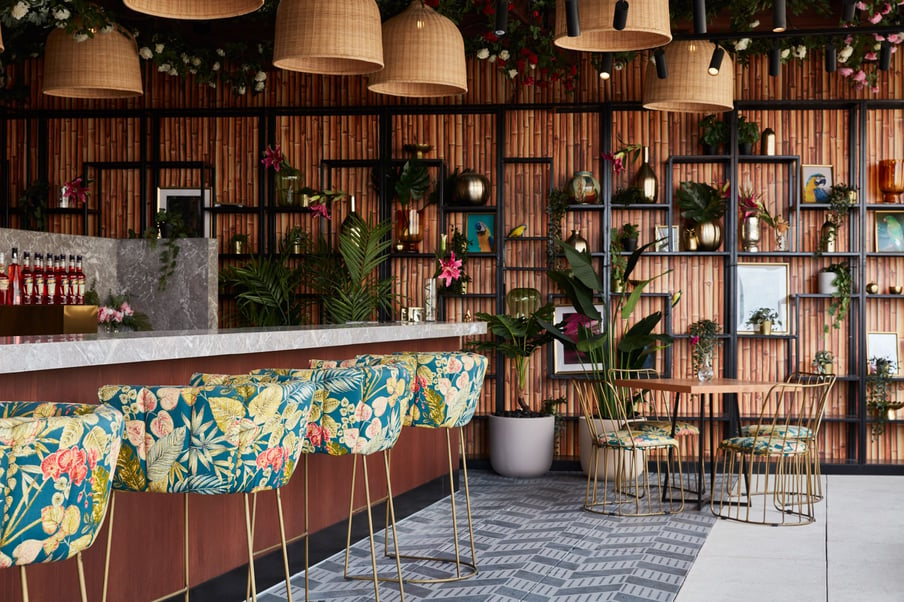
The visual aspect of a restaurant is one of its main selling points, there is no doubt about that. Dining out is a rewarding experience for all our senses, and although taste will undeniably come first, the vision and the surroundings we’ll experience are equally important in formulating the overall mood. It is worth working with an experienced interior designer who can breathe life and creativity into an idea.
Beyond the visual there is the sensory and the experiential. Although often forgotten, they are the aspects that really elevate a simple “pretty” or “instagrammable” concept to a venue worth returning to.
A ground-breaking restaurant concept will focus on all the little details - from themed menu, to branding details across all levels (uniforms, menu, printed advertising collateral, interior decisions). The service will also have to reflect the concept of the restaurant - there are different expectations that come with fine dining and a casual franchise.
he overall experience in the restaurant - the music, the entertainment, the food delivery, the styling of the food - all add to the unique concept. All elements of the restaurant should provoke a sensorial reaction, a positive and strong emotion, which will last as a memory. The unforgettable experience brings the customer back for a second visit.
“A ground-breaking concept is a restaurant with a story & emotional connection. You can always tell when a restaurant has integrity, when there’s a clear story being told throughout, all the way from on Instagram before you make your reservation, through to when you receive the bill at the end.” adds Magdalene.
7. The Menu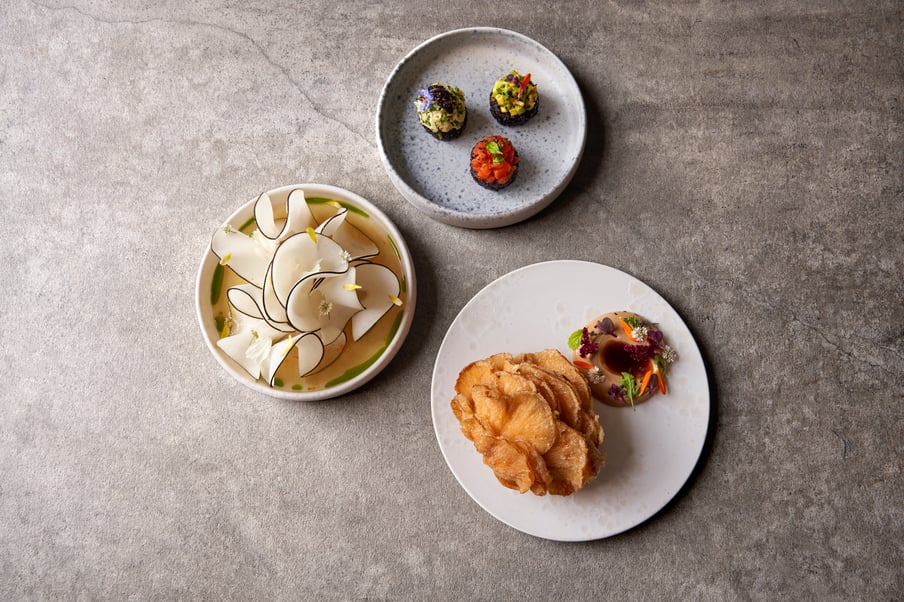
It is simple really - even the most gorgeous of restaurants won’t have people returning for a second visit, if it didn’t fulfil its main purpose - satiate, both the mind and the simpler stomach.
Behind a great menu, there’s usually a brilliant master chef, or a team of chefs who deliver the original idea.
“An incredible chef & their team is so important.” - adds Magdalene Welch.
“Ground-breaking doesn’t necessarily mean famous or Michelin-starred, but a chef with passion & love for what they do is easily recognised in the food & menus they produce.”
8. Data-Driven Marketing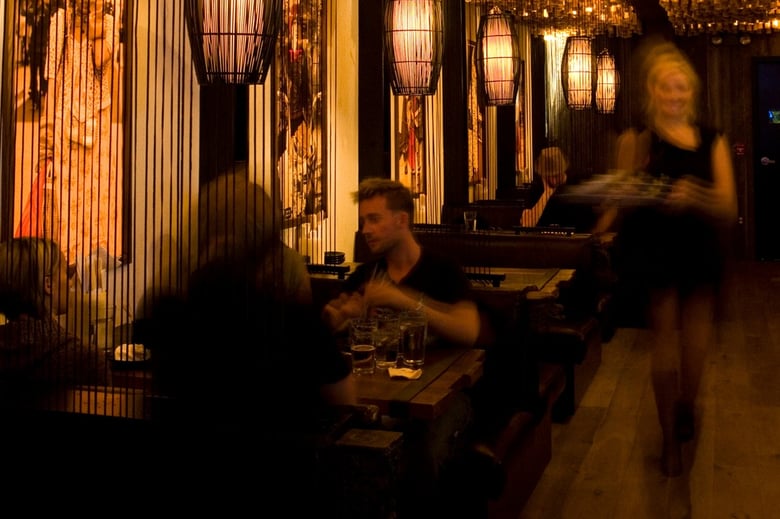
Identifying the niche or the target market of a restaurant is where the marketing knowledge comes into place. Developing strategic marketing campaigns is not just about reaching everyone but rather - the niche, target audience that will truly connect with your venue’s unique offering.
Once this has been pinpointed, design a cross-channel marketing campaign, which emphasises these USPs. And, most importantly - track every single bit of it. Every Instagram post or a TikTok video should have a purpose, which is then evaluated against benchmarks or Key Performance Indicators (KPIs).
“Nowadays guests tend to research restaurants on social media to help in making a decision on whether to visit or not. This means that often the first interation/experience of a brand is from their online presence, so it is very important for brands to focus heavily on their social media presence and their photography to capture the interest of guests in this first instance and entice them to visit.” says Madeline McLeary, Brand Development Manager for TGP International.
Every multi-channel campaign, whether it is in the traditional space (print, billboard, physical) or online, should be tracked, because if there’s no understanding of performance, there can’t be a clear path to success.
9. Getting the Right Team.jpg?width=814&height=581&name=221019_TGP_Portraits_098%20(1).jpg)
The right team can make or break a restaurant concept, regardless of how long the venue has been functioning. Customer service and overall team performance depends heavily on how well the different characters fit together and also on each individual’s accountability, drive and willingness to support others.
It is easy for a customer to pinpoint if there are issues with the staff - from difficulties, mistakes and delays with fulfilling orders to dissatisfaction with overall demeanour. All of these can easily impact the brand reputation of a venue with long term negative consequences.
But beyond the on-site staff, there is also the importance of the overall team behind the concept. Working with people and creatives who have a mindset that complements your idea and the experience to bring it to life is also a major contributor to long-term success.
Magdalene Welch says: “At TGP International, our team comes from so many different backgrounds, professions, & walks of life, so we have different perspectives & this gives us a multi-faceted approach. We make an effort to understand our clients & our customers.”
“The 360 approach the team have is what sets us apart – we have expertise in every aspect of F&B from concept development, graphic design, interior design, operations, menu development, marketing, franchising. knowledge of market trends, predictions of what’s going to be the next big thing in F&B, the sheer passion and drive the team have to excel in every area to create a ground-breaking outcome. “ adds Madeline McLeary.
10. Stay True to the Brand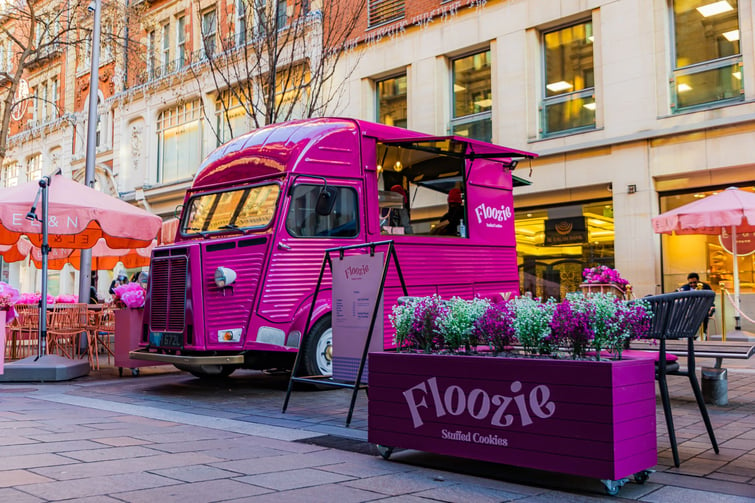
Quite often, following the initial development and launch of a concept, there is temptation to expand to a multitude of different offerings to meet any possible client niche and desire. However, this might do more harm than good, as the brand loses its identity, and what made it popular with customers in the first place.
“An element of uniqueness is key. Brands should look ahead of the trends, what is the new, never seen before element that they can introduce? What gap can they fill? What is the future for F&B?” says Madeline McLeary
Developing a concept and a theme inspires a whole chain of brand-related decisions, when opening a venue. From the interior design, to the menus, target customers and wider business plan, it all revolves around that initial decision. Adding too much to it later in the process can dilute the overall feel and result in confused staff, overworked kitchen and a mismatch of identities, which ultimately confuses and distracts customers.
Staying true to one’s origins doesn’t mean there isn’t space for innovation and reinventing the concept - it simply shows that every part of the concept has been developed to perfection.
At TGP International we help ideas develop into concepts, which then come to life as breath-taking venues across the world. Whether it’s bringing an existing franchise to a new market or helping clients research and evolve their dream into a physical venue, our specialist team has proven experience across every aspect of hospitality and F&B marketing. Get in touch to discover your new venture.
And if you enjoyed this blog, why not check The Unwritten Rules of Restaurant Interior Design
-1.png?width=3330&height=698&name=TGP%20International%20Logo%20White%20(1)-1.png)
